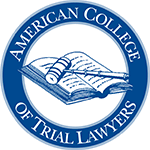Assisted suicide law challenged in state, federal courts
Fulton County Daily Report
Georgia’s assisted suicide law under fire
Lawyers for Final Exit Network challenge statute in state, federal courts
Monday, December 13, 2010
By Greg Land, Staff Reporter
Georgia’s assisted suicide law faced attacks on two fronts last week, as a Forsyth County judge heard arguments from lawyers asking him to declare the statute unconstitutional on the heels of a similar request that was filed in federal court.
Both actions involve the Final Exit Network, an organization that says it provides advice to “mentally competent adults” who are considering ending their lives “when they suffer from a fatal or irreversible illness or intractable pain, when their quality of life is personally unacceptable, and the future holds only hopelessness and misery.”
The Forsyth County case involves criminal charges against four members of the organization related to the 2008 suicide of a Cumming cancer victim, John D. Celmer, 54, who died after placing a hood connected to a helium tank over his head. In a three-count indictment handed down in March, Thomas Goodwin of Kennesaw, Claire Blehr of Atlanta, and Lawrence Egbert and Nicholas A. Sheridan, both of Baltimore, were charged along with Final Exit itself with offering to assist in the commission of a suicide, evidence tampering and violations of Georgia’s Racketeer Influenced and Corrupt Organizations statute.
On Friday, attorneys appeared before Forsyth County Superior Court Judge David L. Dickinson seeking to have the charges dismissed, arguing among other things that the Georgia law’s provision that anyone who “publicly advertises, offers or holds himself out” as being willing to assist someone’s suicide, and “commits any overt act to further that purpose,” is a violation of the First Amendment’s guarantee of free speech.
A similar argument is among the points raised in a suit filed Thursday by attorney Cynthia L. Counts in U.S. District Court in Atlanta on behalf of two Final Exit volunteer counselors, known as “exit guides,” and a woman suffering from Huntington’s disease who wishes to be advised by the organization. The volunteers, she said, are afraid that their counseling of the woman—even the advice they already provided, which was to refrain from suicide and seek hospice care for now—could be construed as “overt acts” and leave them vulnerable to charges similar to those their colleagues are facing in Forsyth County.
“This is a pre-enforcement challenge, so that these individuals can have a declaration that these actions are legal, rather than risk going to jail,” said Counts, whose complaint characterizes the law as a violation of both the state and federal constitutions, and as overbroad and vague.
While the courts have looked at assisted suicide laws in other states and found that the state has a compelling interest in preserving life, she said, the Georgia law is much broader, seemingly making it a crime simply to discuss someone’s desire to end their life with them.
“It’s crazy,” she said. “Suicide is not illegal in Georgia; neither is attempted suicide. But this law impacts a person’s right to expression, to discuss end-of-life issues.
“There’s also an issue of whether simply being present, or holding someone’s hand while they die, is an “overt act.
“Conduct can be considered pure expression—the right to march down the street is conduct, but it also has a significant expressive component, so it should still get First Amendment protection,” said Counts. “Likewise here, the conduct of demonstrating a how to painlessly end one’s life or compassionately holding the hand of someone dying is certainly ‘expressive’ and such speech should be afforded First Amendment protection.
“In the Forsyth case, attorneys Bruce S. Harvey, Robert G. Rubin, Donald F. Samuel and L. David Wolfe represent different clients but shared the duties of arguing their motions. Rubin opened with his own First Amendment attack on what he termed a “convoluted and difficult to understand” statute.
While not all speech is constitutionally protected, said Rubin, restrictions on “content-based” speech, such as laws against obscenity or incitement, must not only be in furtherance of a compelling state interest but must also be as narrowly tailored as possible. Georgia’s law does not meet that description, he said.
“The ironic and bizarre thing is,” said Rubin, “that in Georgia, the assistance of suicide is not illegal,” but it’s a crime for anyone “who advertises or holds himself out” as willing to assist a suicide.
“In a way,” he said, “the statute is both overly inclusive and under-inclusive.
“Forsyth County District Attorney Penny A. Penn countered that, by including the proviso that an overt act furthering a suicide must be a part of the violation, the law still adhered to constitutional strictures.
“It’s the state’s position that no First Amendment issue exists here,” said Penn. “[The law] criminalizes action, not speech.”
“The intent of the Legislature was to criminalize assisted suicide in certain instances, not simply advertising or holding oneself out,” she said. “It’s not the speech that is illegal, but the conduct.
“Wolfe rose to take on the statute on equal protection grounds, arguing that the law criminalizes public speech concerning suicide while ignoring private discussion of the same issue.
“You clearly cannot limit speech in a public forum,” he said, which is “the very core of the First Amendment. … This code section criminalizes the street-corner pontificator who professes that he is willing to assist in making someone’s life choices.
“Not so, said Penn, arguing that the law’s authors intended to allow such end-of-life discussions to take place between family members and loved ones, while “protecting the public at large from a Dr. Kevorkian-type situation.”
“I would say that Georgia’s statute is more progressive than most” found in other states, said Penn.
At the end of the three-hour hearing, Dickinson said he would take the arguments under advisement.








